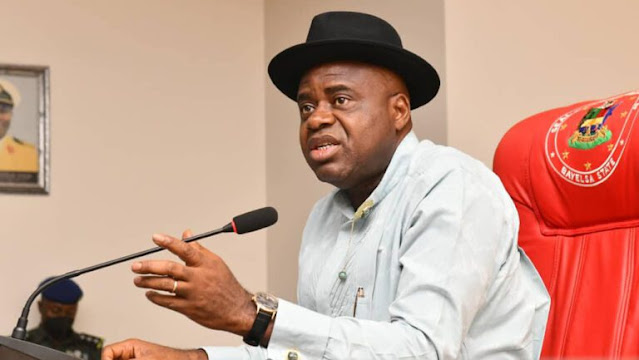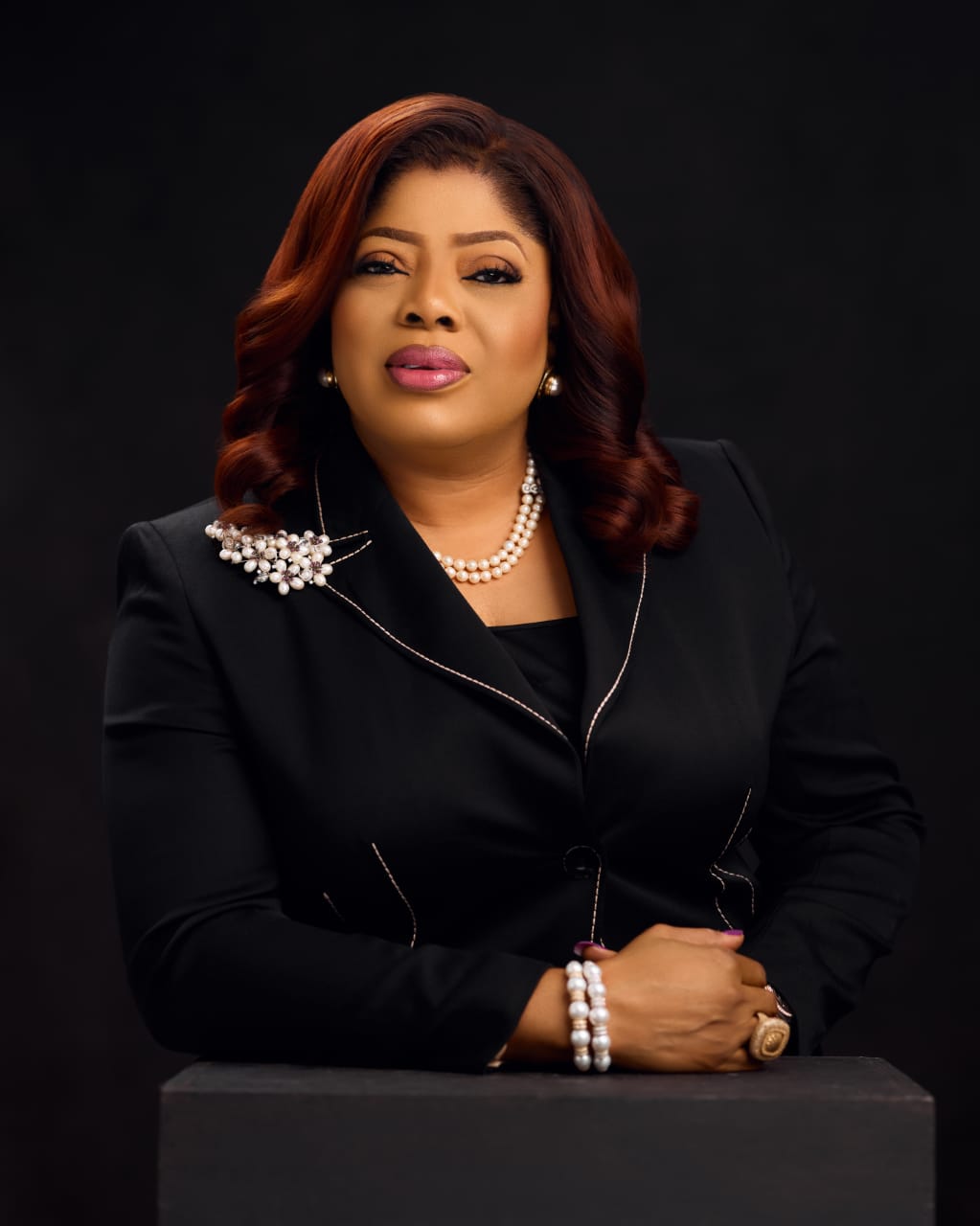On September 3, 2025, Bayelsa State Governor, Senator Douye Diri, swore in Mrs. Biobelemo Sawyer as the 12th Head of Service (HoS) of the state, marking a significant milestone in the state’s public administration. The ceremony, held at the Executive Council Chambers in Government House, Yenagoa, was attended by top government officials, traditional rulers, and civil society representatives. Mrs. Sawyer, a seasoned administrator with over three decades of experience in the Bayelsa State Civil Service, succeeds Mrs. Biobarakuma Degi-Eremienyo, who retired after serving with distinction. Governor Diri charged the new HoS to drive reforms, enhance professionalism, and align the civil service with his administration’s “Prosperity Agenda” to deliver sustainable development for Bayelsans. This appointment, the first major administrative change of Diri’s second term, underscores his commitment to strengthening governance and fostering a more efficient and responsive public service in one of Nigeria’s youngest states.
The Significance of the Appointment
The swearing-in of Mrs. Biobelemo Sawyer as Bayelsa’s 12th Head of Service is a pivotal moment for the state, which has faced significant challenges in governance, economic development, and public service delivery since its creation in 1996. As the administrative head of the state’s civil service, the HoS plays a critical role in coordinating government policies, managing the workforce, and ensuring the effective implementation of the governor’s agenda. Sawyer’s appointment comes at a time when Bayelsa is grappling with issues such as infrastructure deficits, environmental degradation from oil exploration, and the need to diversify its economy beyond oil and gas.
Governor Diri, who began his second term in February 2024 after a closely contested election, emphasized the importance of a robust civil service in achieving his administration’s goals. During the swearing-in ceremony, he urged Sawyer to leverage her vast experience to reposition the civil service for greater efficiency and professionalism. “You have been a round peg in a round hole in the course of your career,” Diri said, praising Sawyer’s dedication and competence. He highlighted her role as a trailblazer, noting that her appointment as the second female HoS in Bayelsa’s history is a testament to the state’s commitment to gender equity and meritocracy.
Sawyer’s predecessor, Mrs. Biobarakuma Degi-Eremienyo, was lauded for her contributions to stabilizing the civil service during her tenure. Diri described Degi-Eremienyo as a “consummate public servant” whose leadership laid a strong foundation for her successor. The transition to Sawyer is expected to build on this legacy, with a focus on modernizing administrative processes, enhancing transparency, and improving service delivery to meet the needs of Bayelsa’s growing population.
Mrs. Biobelemo Sawyer: A Profile in Public Service
Mrs. Biobelemo Sawyer brings a wealth of experience to her new role, having served in various capacities within the Bayelsa State Civil Service for over 30 years. A native of Bayelsa, Sawyer began her career in the state’s public service in the early 1990s, rising through the ranks due to her dedication, professionalism, and administrative acumen. Her career spans multiple sectors, including education, finance, and human resources, giving her a broad perspective on the challenges and opportunities facing the state.
Sawyer holds a degree in Public Administration from a reputable Nigerian university and has participated in numerous professional development programs, both locally and internationally. Her expertise in policy implementation, workforce management, and institutional reforms has earned her respect among colleagues and stakeholders. Prior to her appointment as HoS, Sawyer served as a Permanent Secretary in several key ministries, where she was instrumental in driving administrative reforms and improving interdepartmental coordination.
Her appointment as the second female HoS in Bayelsa’s history is a significant achievement in a state where women have historically been underrepresented in top administrative roles. The first female HoS, whose tenure set a precedent for gender inclusion, paved the way for leaders like Sawyer to take on high-profile positions. Governor Diri highlighted this milestone, stating, “Mrs. Sawyer’s appointment is a reflection of our belief in the capacity of women to lead and deliver results. She is a role model for young Bayelsans, particularly women, aspiring to serve their state.”
The Role of the Head of Service in Bayelsa
The Head of Service is one of the most critical positions in Bayelsa’s governance structure, serving as the chief administrative officer of the state’s civil service. The HoS is responsible for overseeing the operations of all ministries, departments, and agencies (MDAs), ensuring that government policies are implemented effectively and efficiently. This role involves managing a workforce of thousands of civil servants, coordinating budget implementation, and fostering a culture of accountability and professionalism.
In Bayelsa, the civil service is the backbone of the state’s governance, delivering essential services such as education, healthcare, and infrastructure development. However, the civil service has faced challenges, including bureaucratic inefficiencies, low morale, and allegations of corruption. Sawyer’s mandate includes addressing these issues by introducing reforms to streamline operations, enhance digitalization, and improve staff welfare. Governor Diri specifically tasked her with repositioning the civil service to support his administration’s priorities, which include infrastructure development, youth empowerment, and economic diversification.
The “Prosperity Agenda,” Diri’s flagship policy framework, aims to transform Bayelsa into a hub of economic opportunity and sustainable development. Key initiatives include the construction of roads and bridges to connect remote communities, investments in education and skills training, and efforts to mitigate the environmental impact of oil exploration. As HoS, Sawyer will play a central role in translating these policies into actionable programs, ensuring that the civil service is aligned with the governor’s vision.
Bayelsa’s Governance Challenges
Bayelsa State, located in the heart of the Niger Delta, is Nigeria’s smallest state by landmass but one of its most resource-rich, contributing significantly to the country’s oil and gas production. Despite its wealth, Bayelsa faces persistent challenges, including poverty, unemployment, and environmental degradation caused by decades of oil exploration. The state’s dependence on federal oil revenue, which accounts for over 80% of its budget, has limited its ability to diversify its economy and invest in critical sectors like agriculture and tourism.
The civil service, as the engine of government operations, has often struggled to deliver on its mandate due to systemic issues. Bureaucratic red tape, outdated processes, and inadequate training have hampered efficiency, while low salaries and delayed promotions have affected staff morale. Additionally, the state’s challenging terrain—characterized by rivers, creeks, and swamps—complicates infrastructure development and service delivery, requiring innovative approaches to governance.
Governor Diri’s administration has made strides in addressing these challenges. Since taking office in 2020, he has prioritized infrastructure projects, such as the Yenagoa-Oporoma Road and the Nembe-Brass Road, to improve connectivity. His administration has also invested in education, establishing new schools and upgrading existing ones, and launched youth empowerment programs to reduce unemployment. However, the success of these initiatives depends on a capable and motivated civil service, making Sawyer’s role as HoS critical to their realization.
Gender Equity and Representation
Mrs. Sawyer’s appointment as the second female HoS in Bayelsa’s history is a significant step toward gender equity in the state’s public administration. Nigeria has made progress in promoting women’s leadership, but women remain underrepresented in senior government positions, particularly at the state level. According to a 2023 report by the National Bureau of Statistics, women hold only 15% of senior administrative roles in Nigeria’s public sector, despite comprising nearly half of the workforce.
In Bayelsa, the appointment of female leaders like Sawyer sends a powerful message about the state’s commitment to inclusivity. During the swearing-in ceremony, Governor Diri emphasized the importance of merit over gender, stating, “Mrs. Sawyer was chosen not because she is a woman, but because she is the best person for the job.” This approach aligns with global calls for gender equality, as outlined in the United Nations’ Sustainable Development Goals (SDGs), particularly Goal 5, which focuses on gender equality and women’s empowerment.
Sawyer’s appointment is expected to inspire more women to pursue leadership roles in Bayelsa’s civil service. It also underscores the need for policies that promote work-life balance, professional development, and equal opportunities for women in the public sector. Civil society groups, such as the Bayelsa Women’s Forum, have praised the appointment, with Chairperson Mrs. Ebiere Okoko stating, “Mrs. Sawyer’s elevation is a victory for women and a call to action for young girls to aim high.”
Implications for Public Administration
The appointment of Mrs. Sawyer as HoS comes at a pivotal moment for Bayelsa’s public administration. The state’s civil service is undergoing a transformation, driven by the need to modernize processes, embrace technology, and improve service delivery. Sawyer’s experience as a Permanent Secretary positions her to lead these reforms effectively. Key areas of focus for her tenure are likely to include:
Digitalization: Introducing e-governance systems to streamline administrative processes, reduce paperwork, and enhance transparency. The adoption of digital tools, such as electronic payroll systems and online service portals, could improve efficiency and accountability.
Staff Welfare: Addressing issues like delayed salaries, inadequate training, and poor working conditions to boost morale and productivity. A motivated workforce is essential for implementing the government’s development agenda.
Capacity Building: Investing in training programs to equip civil servants with the skills needed for modern governance. This includes training in project management, data analysis, and stakeholder engagement.
Anti-Corruption Measures: Strengthening mechanisms to combat corruption and ensure that public resources are used effectively. This could involve stricter oversight of procurement processes and regular audits of MDAs.
These reforms are critical for aligning the civil service with the demands of a rapidly changing world. The global shift toward digital governance, coupled with Nigeria’s push for economic diversification, requires a civil service that is agile, innovative, and responsive. Sawyer’s leadership will be instrumental in driving these changes, ensuring that Bayelsa’s public administration is equipped to meet the challenges of the 21st century.
Broader Context: Governance in Nigeria
Bayelsa’s administrative reforms must be viewed within the broader context of governance in Nigeria. The country’s public sector faces systemic challenges, including inefficiency, corruption, and inadequate funding. According to Transparency International’s 2024 Corruption Perceptions Index, Nigeria ranks 145 out of 180 countries, reflecting persistent issues with transparency and accountability. The civil service, as the primary vehicle for policy implementation, is often hampered by these challenges, leading to delays in project execution and poor service delivery.
At the state level, governors play a critical role in shaping the civil service through appointments like the HoS. In Bayelsa, Governor Diri’s administration has prioritized governance reforms, including the establishment of the Bayelsa State Public Service Reform Committee in 2021, which recommended measures to improve efficiency and accountability. Sawyer’s appointment aligns with these efforts, signaling a commitment to building a more effective public service.
Nationally, the Federal Government has also emphasized public sector reforms. The Oronsaye Report, a 2012 blueprint for restructuring Nigeria’s civil service, has been revisited under President Bola Tinubu’s administration, with plans to merge and streamline federal agencies. While these reforms are primarily federal, they provide a framework for states like Bayelsa to modernize their own administrative systems. Sawyer’s role as HoS will involve adapting these national best practices to Bayelsa’s unique context, balancing local needs with broader governance trends.
Public and Stakeholder Reactions
The swearing-in of Mrs. Sawyer has been met with widespread approval from stakeholders in Bayelsa. The Bayelsa State chapter of the Nigerian Civil Service Union (NCSU) congratulated Sawyer, describing her as “a competent and dedicated administrator who will bring positive change to the civil service.” Traditional rulers, such as the Pere of Ekpetiama Kingdom, HRM King Bubaraye Dakolo, praised the appointment as a reflection of Diri’s commitment to meritocracy and development.
On social media platforms like X, reactions have been largely positive, with users commending Sawyer’s experience and the governor’s focus on gender equity. However, some voices have called for greater attention to civil service welfare, with one user stating, “The new HoS must prioritize timely salaries and training for workers to make a real difference.” These sentiments reflect the high expectations placed on Sawyer to deliver tangible improvements in the civil service.
The Path Forward
As Mrs. Biobelemo Sawyer assumes her role as Bayelsa’s 12th Head of Service, she faces both opportunities and challenges. Her leadership will be critical in driving the state’s administrative reforms, ensuring that the civil service is equipped to support Governor Diri’s “Prosperity Agenda.” Key priorities for her tenure include improving efficiency, fostering transparency, and empowering civil servants to deliver quality services.
For Bayelsa, the appointment represents a chance to strengthen governance and address longstanding development challenges. By leveraging Sawyer’s experience and implementing forward-thinking reforms, the state can enhance its capacity to deliver on its promises to citizens. The success of these efforts will depend on collaboration between the government, civil service, and stakeholders, as well as sustained investment in capacity building and infrastructure.
Conclusion
The swearing-in of Mrs. Biobelemo Sawyer as Bayelsa’s 12th Head of Service marks a new chapter in the state’s public administration. Her appointment, rooted in merit and experience, reflects Governor Diri’s commitment to building a more efficient, inclusive, and responsive civil service. As Bayelsa navigates its challenges—from environmental degradation to economic diversification—Sawyer’s leadership will play a pivotal role in shaping the state’s future.
This milestone also underscores the importance of strong governance in achieving sustainable development. By empowering leaders like Sawyer and investing in reforms, Bayelsa can overcome its challenges and unlock its potential as a prosperous and resilient state. As Sawyer takes on this critical role, the hopes of Bayelsans rest on her ability to deliver a civil service that is fit for purpose, driving progress and prosperity for all.







